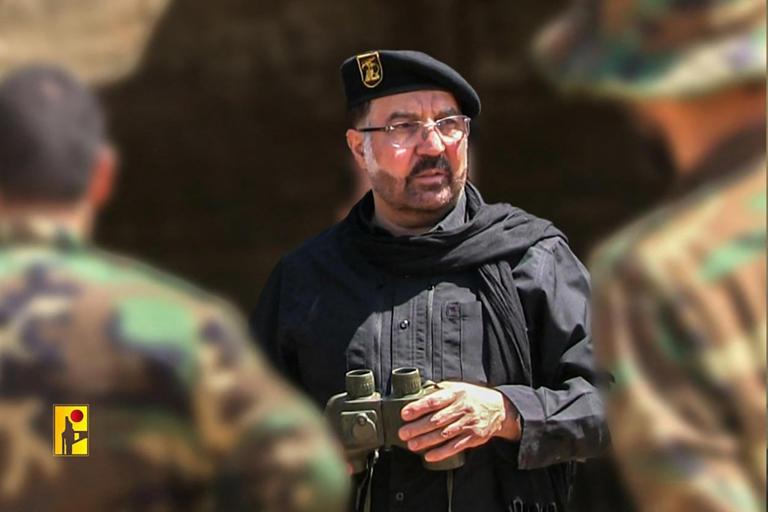
Hezbollah commander lured out of hiding with phone call moments before deadly airstrike: report
Israel lured out an elusive Hezbollah commander with a mysterious phone call moments before launching the deadly airstrike that would kill him and cause the terror group to vow revenge, according to a new report.
Fuad Shukr, who had evaded even the US for four decades, was killed on July 30 when he received a phone call in the southern Beirut neighborhood of Dahiyeh, a Hezbollah official told the Wall Street Journal.
The evening call instructed the Hezbollah commander to go up to the seventh floor of his building, with an Israel missile slamming into the complex at around 7 p.m., killing him, his family and injuring 70 others, according to Lebanon’s health ministry.
Officials in the terror group believe the call came from someone who had breached its internal communications network, exposing failures in Hezbollah’s intelligence network that compromised one of its most senior and elusive leaders.
Shukr was one of Hezbollah’s key founders and trusted ally of chief Hassan Nasrallah, both of whom backed the terror group’s ongoing attacks on Israel since Oct. 8.
Despite his high-ranking position, the commander had remained out of the public spotlight since the 1983 Beirut bombings, where militants detonated two truck bombs at military barracks in the city, killing 241 American servicemen.
Shukr was so elusive that even people living in the same building where he hid and operated had no idea who he was.
“He was like a ghost,” one neighbor told the Journal of Shukr, who he never spotted in the complex.
The Hezbollah officials’ shadow nature even followed him to the grave, with Lebanese media outlets initially publishing photos of the wrong man following the July airstrike.
The IDF had targeted Shukr following the attack he allegedly greenlit the rocket attack against the Israel-controlled Golan Heights, which killed 12 young people and left 40 other civilians injured.
Hours after Shukr’s assassination, Hamas chief Ismail Haniyeh was killed in an alleged Israeli bombing while visiting Tehran.
Nasrallah has since vowed revenge against Israel, with the Hezbollah chief vowing a direct assault on Israel that officials fear could cause the war in Gaza to spread into Lebanon.
Despite the mounting tensions, the daily attacks between the IDF and Hezbollah have continued, with Israel killing yet another top commander, Hussein Ibrahim Kassab, on Saturday.
The drone strike that killed Kassab came as Israel launched another airstrike in the southern city of Nabatieth, killing 10 people.
The terror group retaliated by launching 55 rockets into northern Israel, with some of the rockets falling into open areas again and igniting multiple fires.
Source » msn.com





